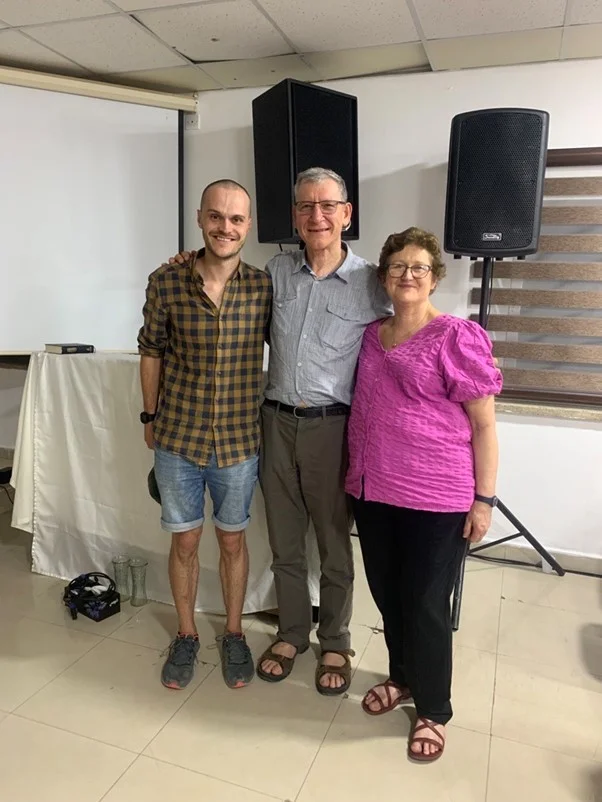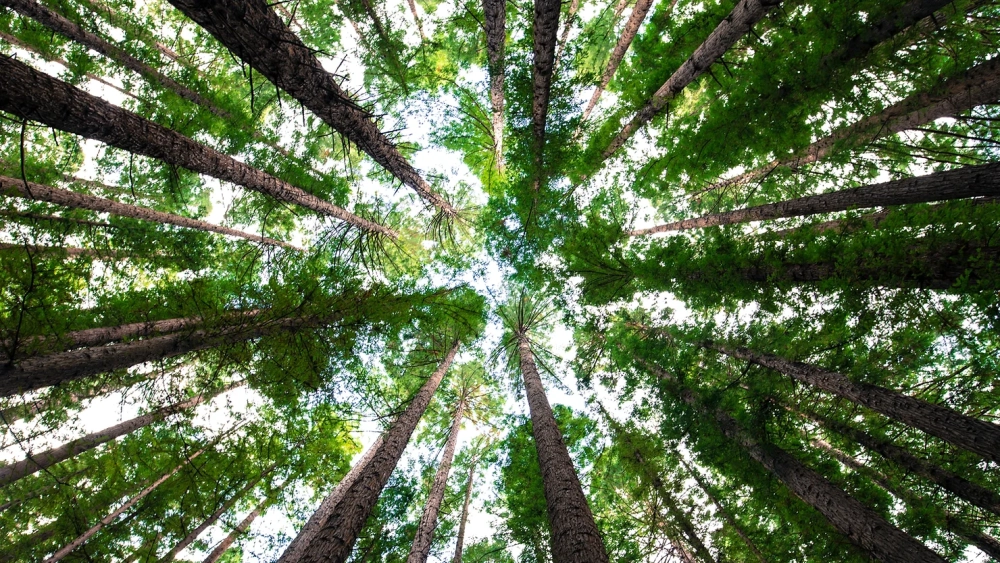Forests: why Christians should care
Advice and inspiration from the ‘Forest Maker’
If, like me, you grew up in the 1990s and 2000s, forests were probably on the periphery of your consciousness. You may have done leaf rubbings as a kid or searched for mini-beasts among fallen leaves or pine needles. You may have chopped wood for the fire or eaten the fruit of trees such as apples, oranges, dates, or figs.
You may also have seen awareness campaigns about deforestation, using aerial images of trees planted in the shape of lungs, highlighting their central role in sustaining life on earth and the self-destructive nature of cutting trees down.
Today, however, with increasing urbanisation and the creation of virtual spaces where people can exist totally online (such as the metaverse), people are further away from nature, so why are forests important, and more specifically, why should Christians care about this?
Paying more attention
Like most people, I hadn’t paid much attention to forests. Sure, it’s nice to walk through them in the crisp autumn or winter air or to enjoy the new life bursting forth in spring. They are pretty to look at, but that would be about it. It wasn’t until I looked into it that I realised how foundational forests are to life.
Trees produce the oxygen we breathe. They capture carbon. They produce food and medicine. They make it rain, they filter the water we drink and they literally hold the ground together.
They provide fuel for heating and for cooking, making water safe to drink and food safe to eat. They provide ecosystems for plants, insects and animals. They provide jobs and livelihoods. They provide building materials for shelter and tools.
As you read this, you may be sitting on a wooden chair, on a wooden floor, in a building with foundations built on ground that has not eroded because of tree roots. Your clothes may be plant-based. Your laptop or phone will have been packaged in cardboard. If you’re on a plane, the floor is made of paper. If you’re on the loo, you’ll soon be using toilet paper. Wherever you are, stop reading a look around. Chances are you’ll find that trees are giving you something.
Trees and the story of God
Trees play an important role in Scripture, too. In the garden of Eden, humanity’s first story unfolds around a tree. In the new Jerusalem, things centre on the tree of life. Christ was hung on a tree, or was enthroned upon a tree, turning humanity’s curse into humanity’s salvation.
My son’s name, Silas, means ‘Of the Forest’ and my wife and I chose this name for him because of John 15:5 which says: “I am the vine; you are the branches. If you remain in me and I in you, you will bear much fruit; apart from me you can do nothing.”
The idea here for our son – indeed for anyone – is that we are invited to participate in the life of Christ, dying to our old ways of life and instead choosing life and bearing the fruit of love. We can be of the vine (of the forest) when we seek to partner with God in reconciling all things to himself through Christ. In this way we will bear his fruit and the world will come to know him through this fruit.
Caring for trees
In this light, trees bear great importance, both symbolically but also within the physical systems and structures of our world. Sadly though, we conveniently forget that forests are under threat. This is not only through deforestation or poorly managed forests but also monoculture, in which ecosystems and soil moisture are lost, rain becomes less frequent and livelihoods are lost as communities compete for arable land, forcing some to move to the cities.

Phil Hilditch with Tony and Liz Rinaudo
Last year I had the chance to meet Tony and Liz Rinaudo. [You might recognise Tony as the ‘Forest Maker’ and winner of the 2022 Christian Book of the Year for his biography The Forest Underground: Hope for a Planet in Crisis.]
Tony and Liz lived for much of their lives in Niger, the country at the bottom of the Human Development Index but with the top spot for the number of babies per woman. It is located in the Sahel, where desertification is a real problem. Tony, however, after many years of trial and error, has found a solution that is “embarrassingly simple” – FMNR, Farmer Managed Natural Regeneration.
“Farmer Managed Natural Regeneration (FMNR) is a simple, scalable, sustainable land management approach that empowers farmers to stop and reverse land degradation through regrowing trees on farmlands, on grazing lands, and in degraded forests – without requiring any external inputs or expensive equipment. It is used to combat poverty and hunger amongst poor subsistence farmers by increasing food and timber production and resilience to climate extremes.” – Global EverGreening Alliance.
What can you do?
With a problem of this scale, deforestation, or rather, reversing deforestation can seem to be a daunting task, something much bigger than me. Anything I would do would be tokenistic at best and meaningless at worst, right? Well, yes, it is daunting, but as Christians our job is to be faithful, trusting in God to bring success.
Some of the small things that you can do are, firstly, to partner with others. A Rocha is a Christian environmental organisation that is working on restoring forests in Ghana and Kenya. Mossy Earth, though not Christian, runs a rewilding membership where, for as little as around AUD$10 a month, you can contribute to multiple projects around the world. Also, if like me you spend a lot of your day browsing the internet, you could try adding Ecosia as a Google Chrome extension. Ecosia uses the revenue from ads to plant trees.
None of these is a silver bullet as such, but as I heard it said before, perhaps it’s silver grapeshot – lots of little initiatives that together can contribute to making a difference.
As Tony shared: “Saving the world’s forests can seem like a bit of a daunting task for your average person, but what are some of the ways in which your regular person can support this? I would say firstly, pray. God answers prayer.
“Second – be informed. Know what’s happening. What are the trends? Are things getting better or worse? Where? Who’s who in addressing these issues?
“Then take action, first locally, then, if this is your leading, internationally.
“Locally – activities can range from joining an existing ‘friends of xx forest” group and helping with tree planting, protection, clearing of rubbish … to writing to your local member. Take part in informed discussions and debates on local environmental issues. Enlist others to join in. If you can’t be involved physically, consider supporting the group financially.
“Internationally – if you can’t go yourself, support individuals or groups who do.
“What you do will depend on what is within your capability. Who are in your sphere of influence? What are your skills and interests?”
To sum up, forests matter. They matter to God and they should matter to us. We have a mandate and there are things we can do. So next time you are sipping coffee out of a paper cup, sitting at a wooden table, on a wooden chair, on a floor held together by roots, breathing air with oxygen, remember the trees and what you can do to preserve and protect them.
Email This Story
Why not send this to a friend?


